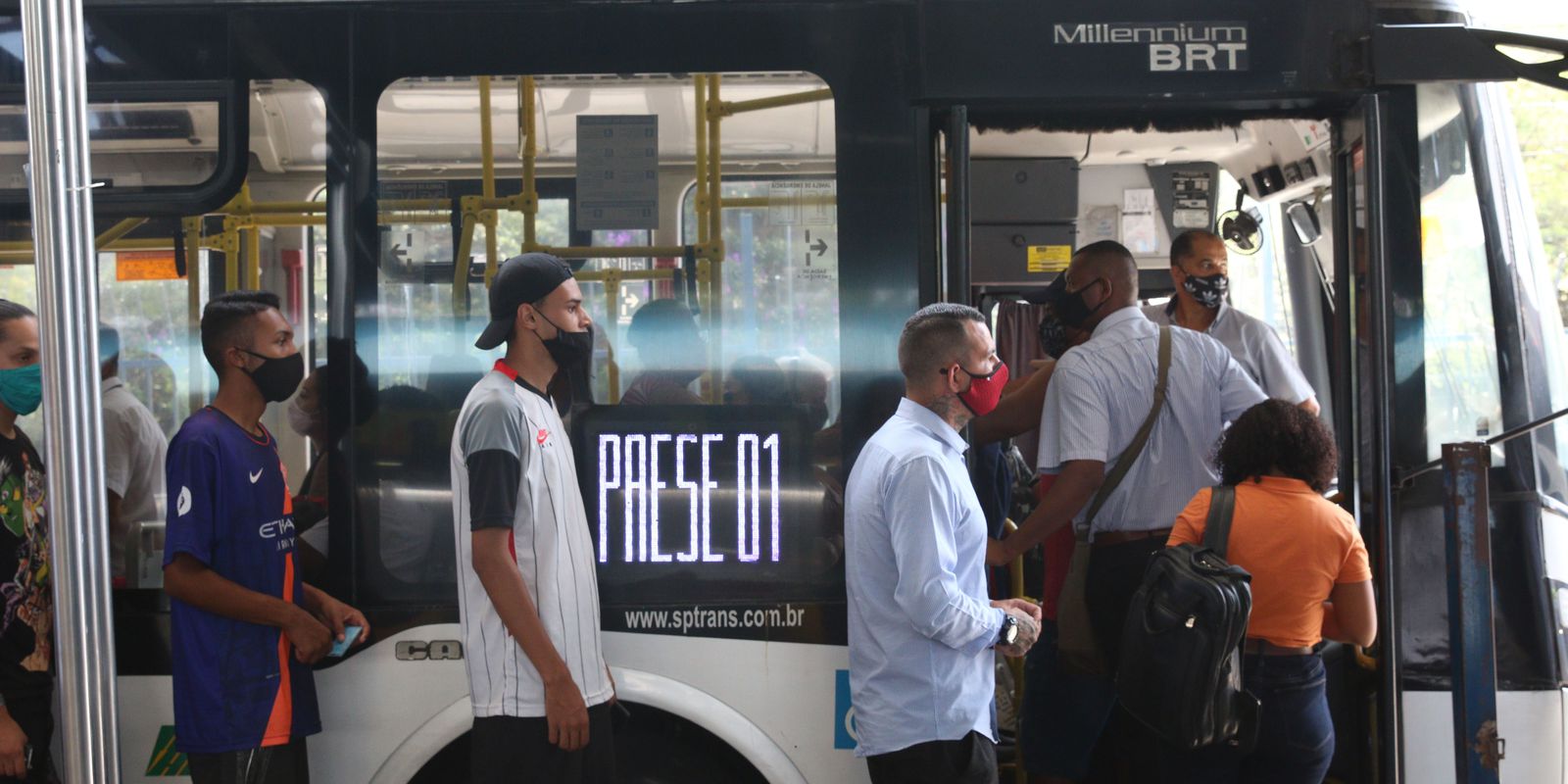Research by the Locomotiva Institute shows that 72% of people say they have already witnessed a situation of racism in their daily transport and 39% have been victims of crime, that is, one in three black people has already suffered prejudice in their displacements. Among black workers working in the sector, this number is even higher: 65% of respondents have already faced some situation of racism during working hours.
The study interviewed 1,200 people and more than a thousand professionals in the transport sector.
When asked about situations of prejudice experienced, the black population reported having been belittled (24%), approached disrespectfully (17%), suffered verbal aggression and been the target of racist expressions (14%).
“Among black transport professionals who faced situations of prejudice, although verbal aggression (47%) and contempt (46%) were more frequent, they were three times more targeted by racist expressions and suffered three times more threats than women. black population victim of racial prejudice in general”, says the survey.
The survey, released today (21) on the International Day of Struggle for the Elimination of Racial Discrimination, was commissioned by the Brazilian Mobility and Technology Association (Amobitec) with the support of Uber, in partnership with the Instituto Identidade Brasil (ID_BR).
“Although some people may have the interpretation that actions such as ‘being belittled’ are imperceptible or less important acts, microaggressions are frequent in the daily life of the black population and psychologically affect those who live this relationship every day. On the other hand, imagining that , even today, one in four people has suffered physical violence as a result of racism in public transport only reinforces the notion that the adoption of actions to combat racism are increasingly urgent and necessary.” said, in a note, the specialist in Diversity and Inclusion of ID_BR, Roberta Calixto.
The study also shows that 71% of black people who work in traffic are afraid of suffering racism or prejudice because of their color. Among the black population in general, this number drops to 41%, which shows that those who have been on the streets for longer are more afraid of suffering this type of discrimination.
The numbers also reveal that bus drivers and collectors are the professionals who most observe cases of racism in their work (75%), followed by app drivers (73%) and taxi drivers (65%).
According to the survey, the number of cases ends up impacting the behavior of black people when planning their displacement: 29% of blacks declared that they have already changed the way they move around the city due to situations of prejudice or discrimination. Among black women, the number reaches 31%. Black women are also the ones who feel most vulnerable in displacements: 72% of them fear suffering some type of sexual harassment, 64% physical aggression and 47% suffer some type of racism.
The survey also included two images to compare transport professionals’ perception of the differences between a black man and a white man: six out of ten professionals believe that a black person is more likely to cause fear in passengers than a white person. The chance of drivers not stopping at boarding for a black passenger is also much higher (61% versus 7%).
For the majority of the population (69%), racism is common in everyday life and 25% believe that people who commit racism are never properly punished. Among transport professionals, this belief in the inadequacy of punishment runs to 38%. As a result, among professionals who have been victims of racism, only 17% have already made some type of complaint, either to the company or to the police.
For the president of Instituto Locomotiva, Renato Meirelles, the survey results show how much racism ends up harming the mobility of Brazilians due to the color of their skin. “It’s as if the right to come and go is harmed according to the color of the passenger’s skin. And this limitation makes the opportunities that people have, whether in the job market, access to education and leisure, become reduced,” said Meirelles.
Methodology
The survey with the general population was carried out quantitatively online with 1,200 people, aged 18 and over, throughout Brazil. Data collection was carried out in January of this year and the margin of error is 2.8 percentage points.
The study with mobility professionals was also carried out in January in a face-to-face quantitative manner with 1,050 people aged 18 and over in the country’s ten main metropolitan regions. The margin of error is 3 percentage points.
















